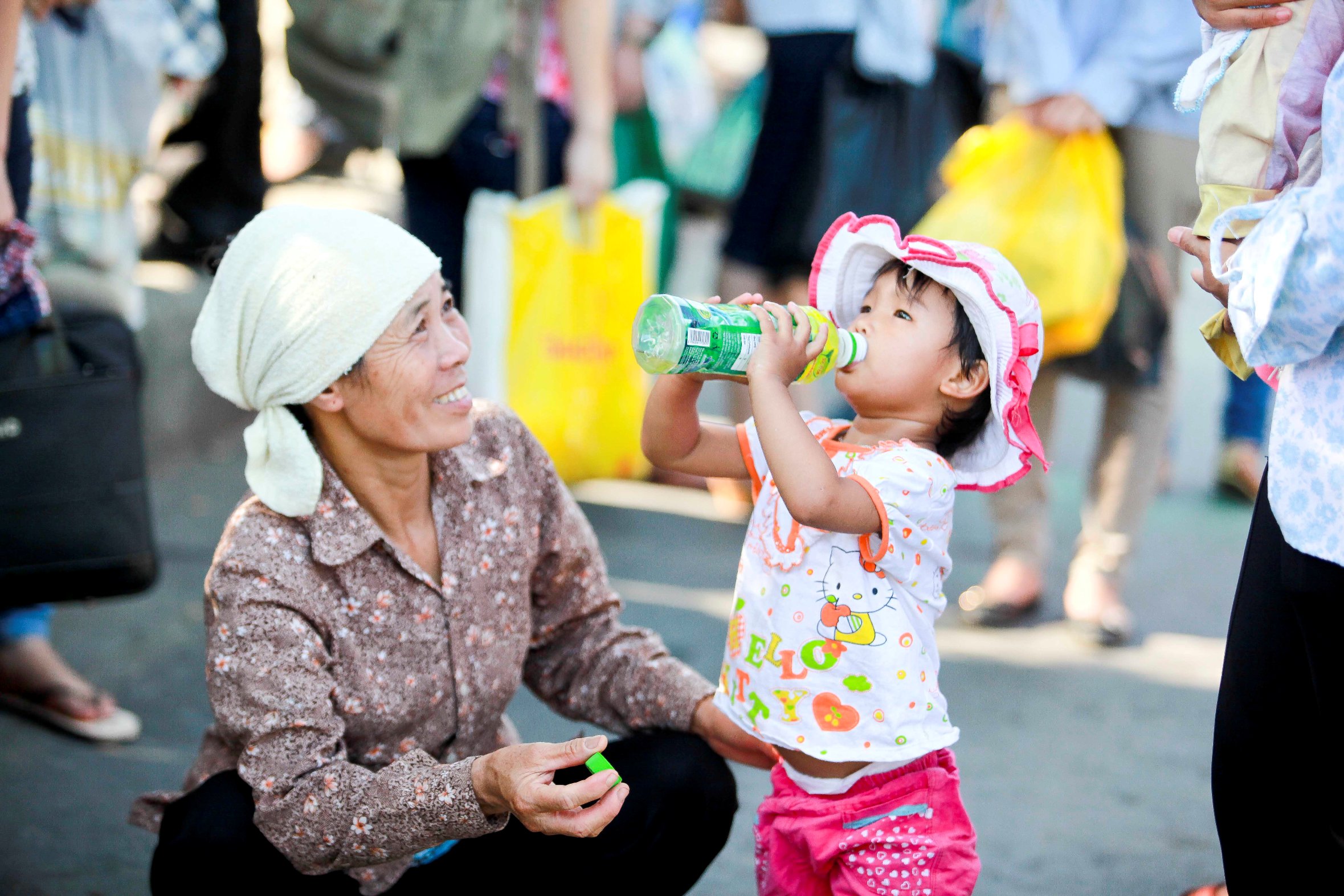A couple of years ago, the school nurse showed me a number on a digital thermometer. My daughter was running a fever of 39.6 – but since we use Farenheit back home, I was more concerned by the nurse’s worried expression. It turned out to be a symptom of a bacterial infection, and our girl was back to normal in a few days.
Now I’m thinking about a different fever – the Spring fever that hit Hanoi with 40 degrees Celsius last week, or 104 Farenheit, the effects of which sent many children and elderly to the hospital. Time was that heat waves would simply come and go, part of the normal routine. But these days it’s harder not to think of extreme weather as a symptom of a long-term, self-inflicted ailment – climate change and global warming. An ill child can bounce back to health. But Earth’s condition is progressive, and accelerating toward a new normal – or, rather, a permanent abnormal.
Most readers here, I assume, are not the kind of willful know-nothings who think of climate science as some vast left-wing conspiracy – a viewpoint promoted by the oil and gas industry. Both the scientific consensus and common sense hold that that emissions from millions of smokestacks and tailpipes operating in the service of 7 billion Earthlings has indeed been altering the fundamental chemistry of our planet, and the impacts are accelerating. Levels of carbon dioxide, the leading greenhouse gas, just hit the milestone of 400 parts per million threshold – and it is sure to keep climbing up, up, up, as are the temperatures.
Back home in the US – the world’s leading per capita producer of greenhouse gases, and second to China in total volume – there is still a great deal of denial and anger regarding climate science. Denial and anger happen to be the classic first two emotional stages of grief, followed by bargaining, depression and acceptance.
Today’s temperature is anecdotal, and so is regional data. Another anecdote would be Australia’s blistering heat wave in January, which showed an average high of 36.92 degrees Celsius – 2.28 degrees above the long-term norm and 0.11 degrees above the previous record. Put all the data over time and place into a mosaic and the trend is clear. Records compiled by the U.S. agencies NASA and the National Oceanic and Atmospheric Administration show that global surface temps in 2012 rose 1.03F, rank it as either the 9th or 10 hottest year since recordkeeping began in 1880. But a single year, like a single day, doesn’t show the trend: Each year of the 21st century has ranked among the 14 hottest years on record. And is any reputable scientist out there predicting a reversal? A return to the climate we used to know?
"One more year of numbers isn't in itself significant. What matters is this decade is warmer than the last decade, and that decade was warmer than the decade before,” a NASA climate scientist explained. “The planet is warming. The reason it's warming is because we are pumping increasing amounts of carbon dioxide into the atmosphere."
An onset of global cooling would be welcome and make thousands of scientists eat crow. The odds of that happening, however, seem as likely as those of a meteor smacking into Earth and bringing on nuclear winter. So what’s to be done? Most experts say that, even with the broad introduction of clean technologies and education efforts, the best practical hope is for a slowing of trend, not a reversal, not with China firing up another coal-fired electricity plant every couple of weeks. Just about everybody wants the goodies of modern life, including cars and air conditioning. And I don’t blame them: As I write these words, I have the air-conditioner on, a perk of my privileged expat lifestyle. I could ride a bicycle more but prefer the motorbike – especially when it’s so damn hot.
Millions of Vietnamese, and billions of people worldwide, have little option but to keep to the shade, or turn on the fan at best, or find a lake or river to cool off. In Hanoi, street life was visibly more sedate during the worst of the heat. But there were still the women shouldering their ganhs – yoke-like sticks – and others working over the hot charcoal-fed grills for bun cha. The trash collectors were still pushing their carts and construction workers trundling loads of bricks and sand.
Vietnam ranks among the nations most vulnerable to climate change, and some of the effects are already affecting agriculture in the Mekong Delta. This, however, won’t prompt Vietnam to adopt radical energy-saving policies, not when the nation aims to become an industrialized nation by 2020. International action is needed but, sadly, a pipe dream. The technological prowess exists to mitigate the problem and help manage it. But the political will is lacking.
A celebrated Silicon Valley technologist – Jim Clark, the subject of Michael Lewis’s “The New New Thing” – now spends much of his energy as an environmentalist focusing on the degradation of the ocean. He once told me how climate change will devastate agriculture and fisheries, triggering famine and warfare and, ultimately, “a population collapse.”
Could it really be that grim? Perhaps he was going through the “depression” stage. Or maybe I’m in denial.



















































